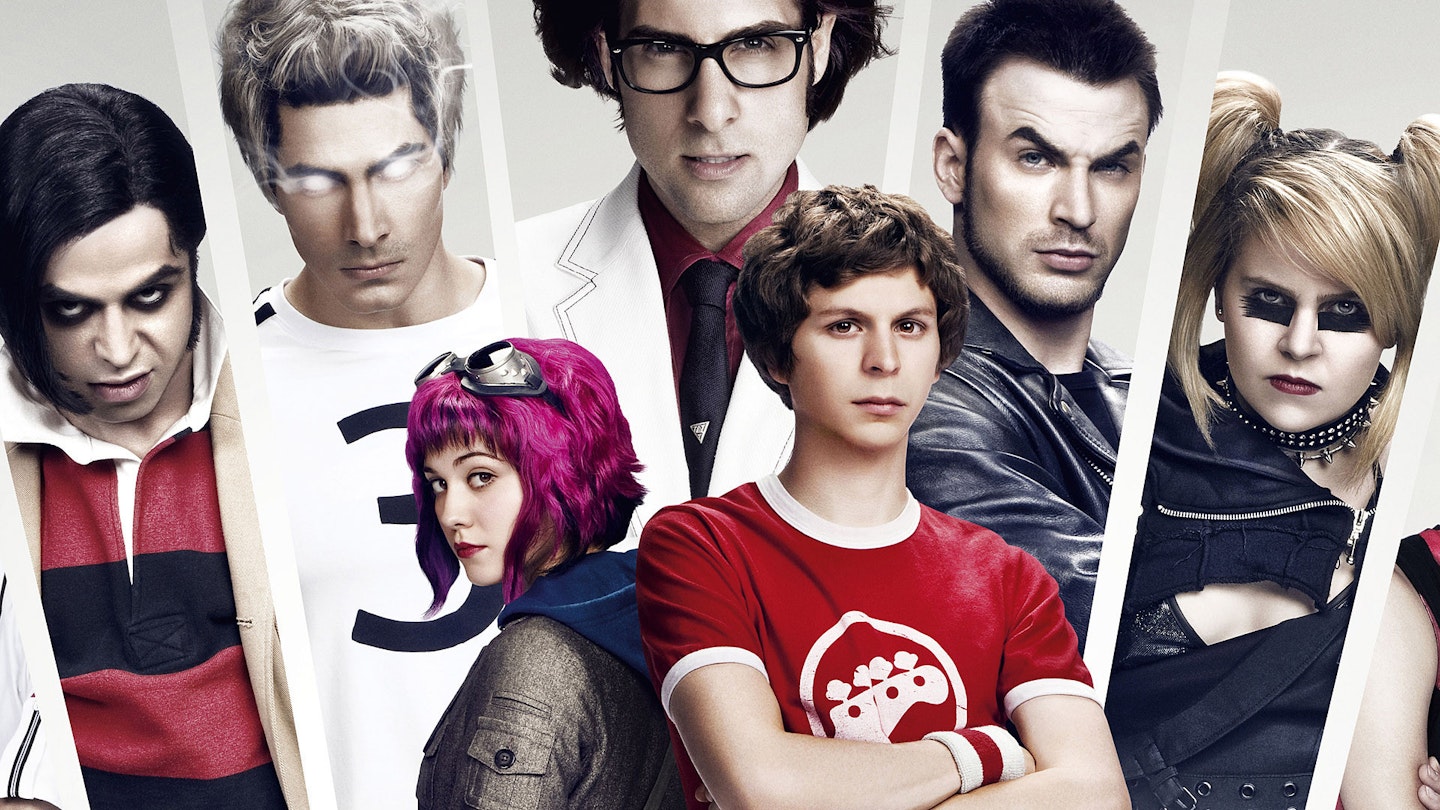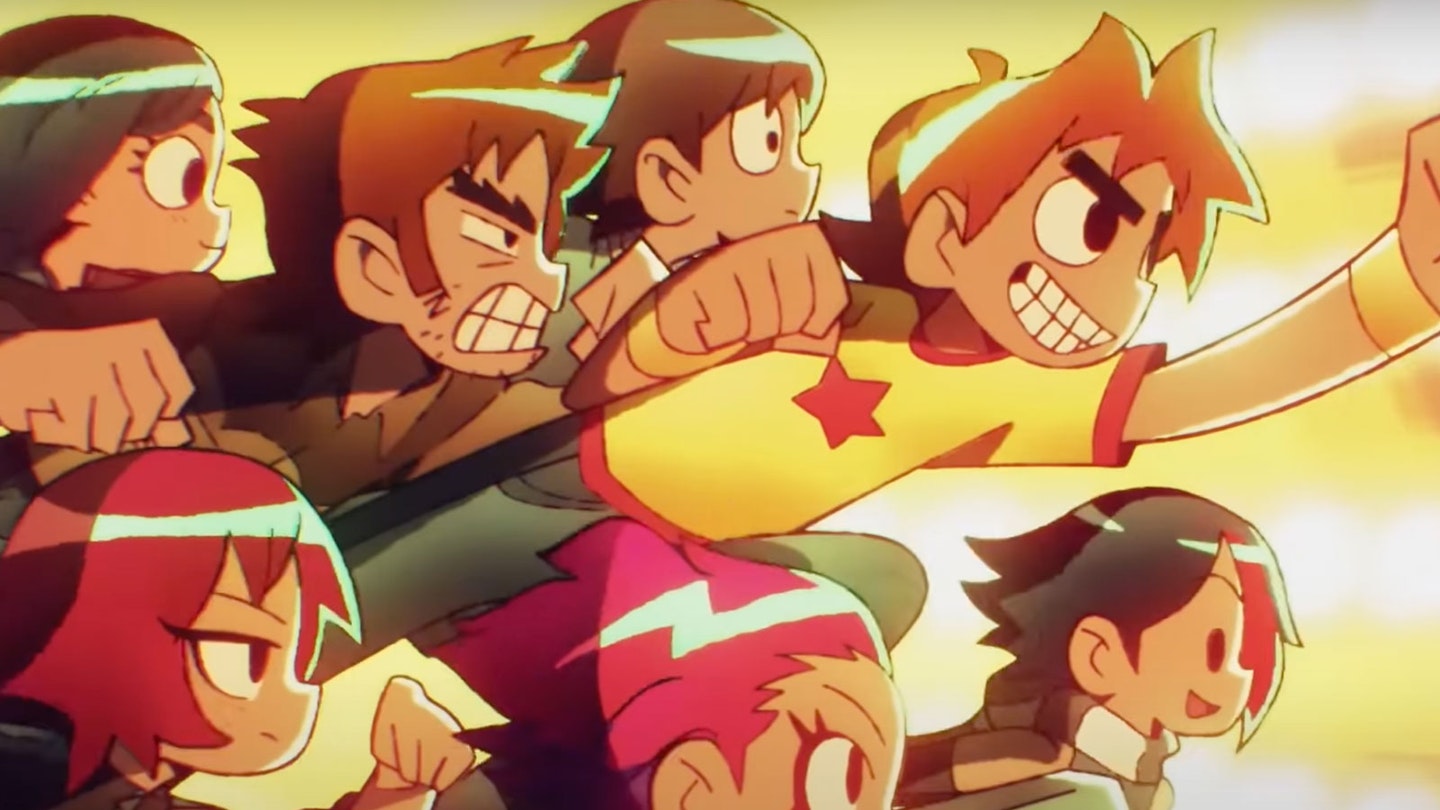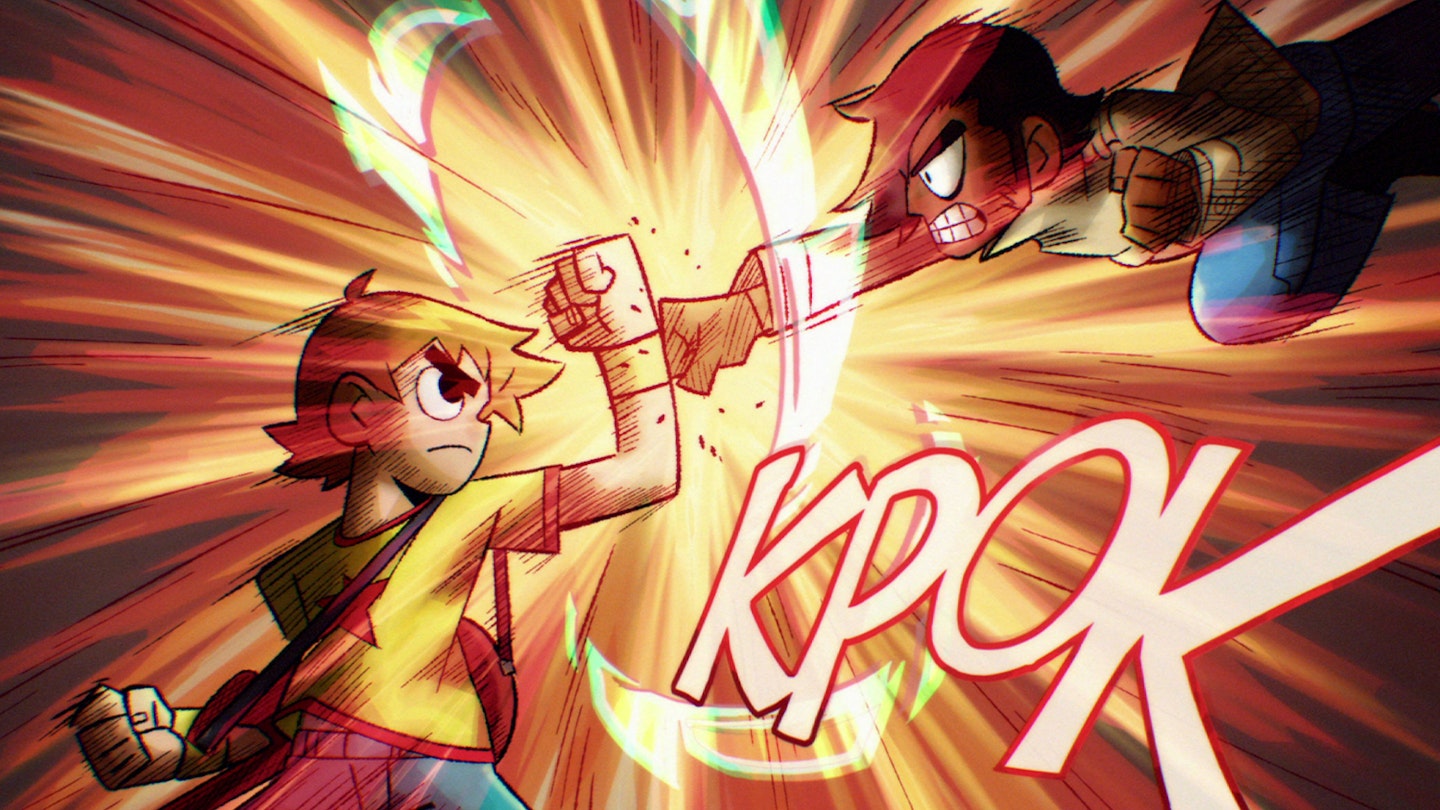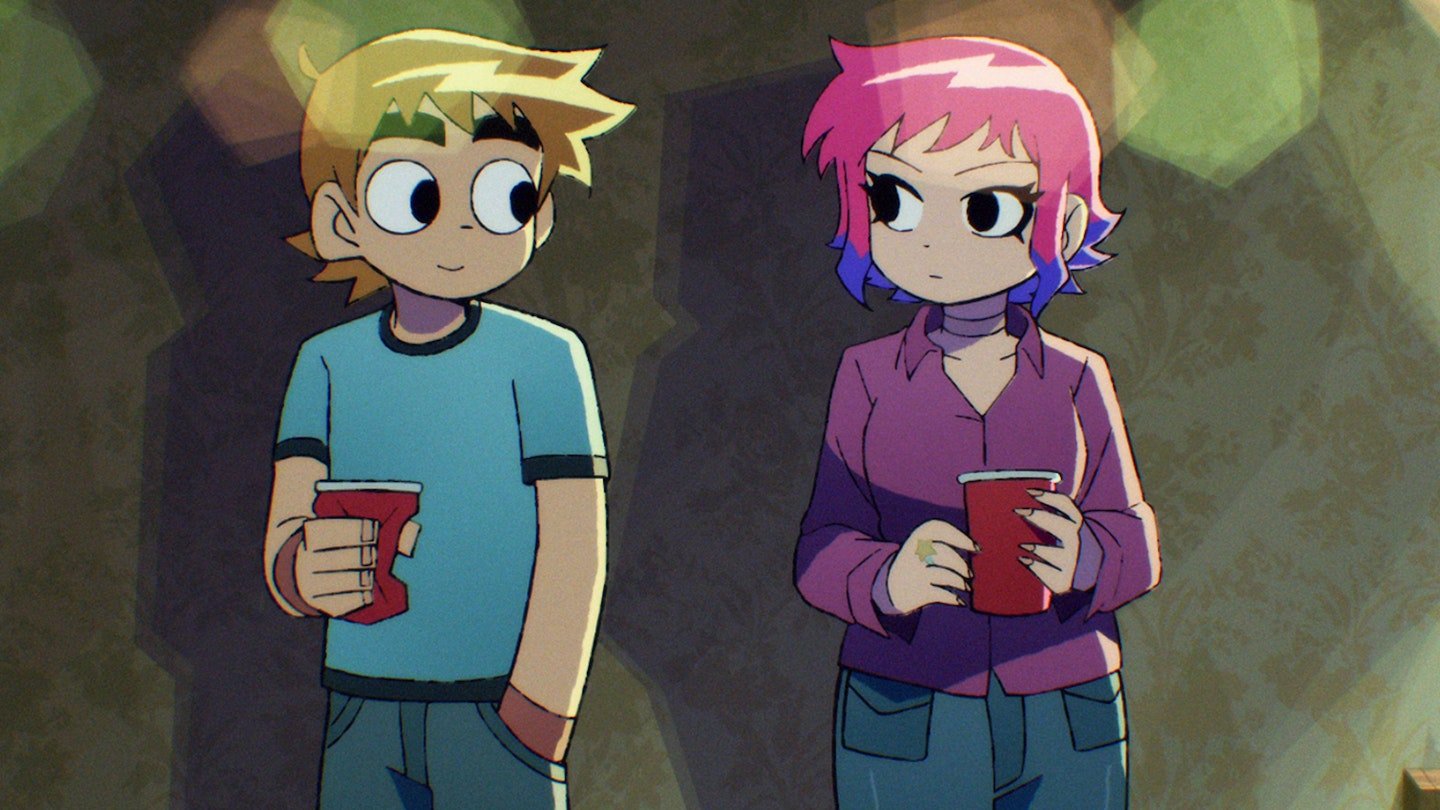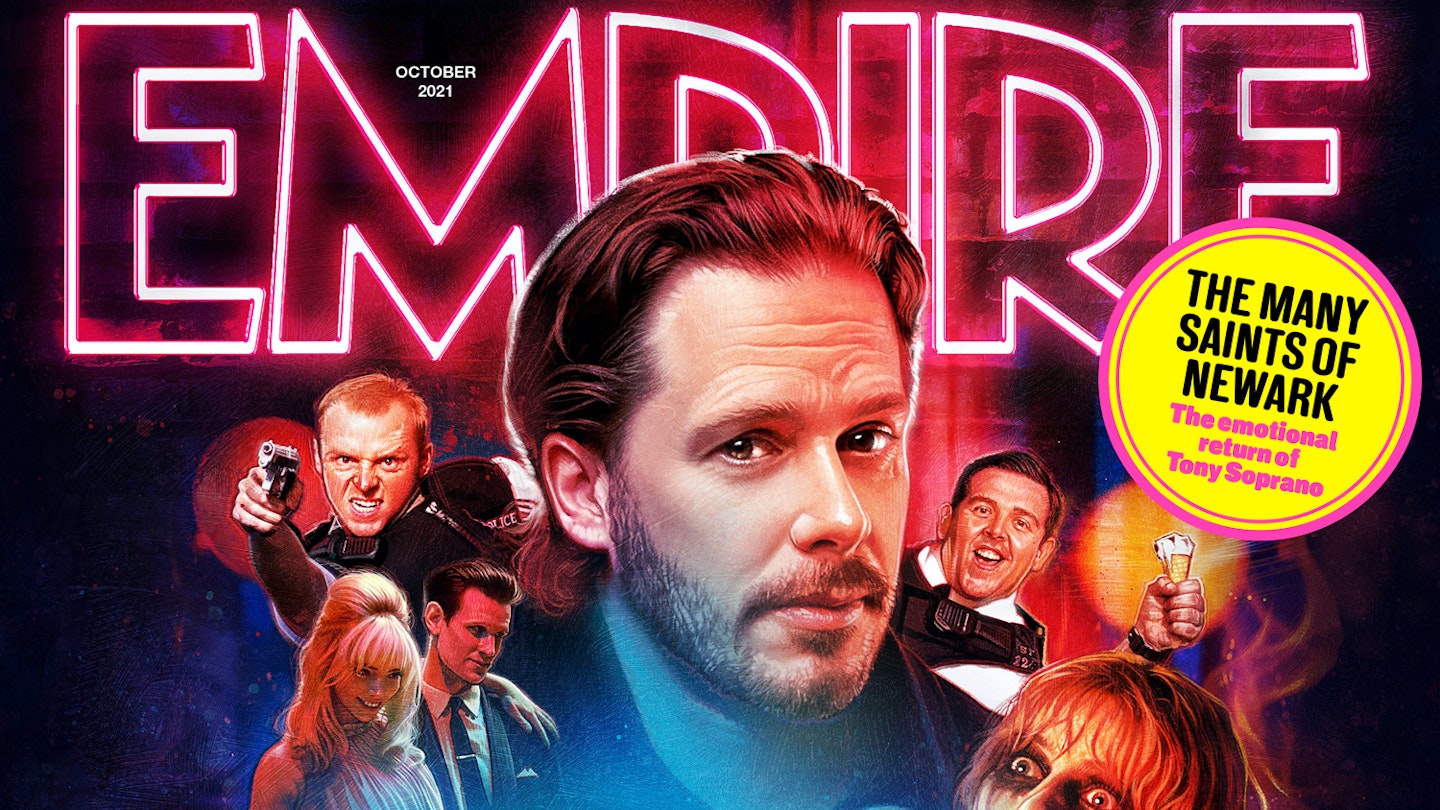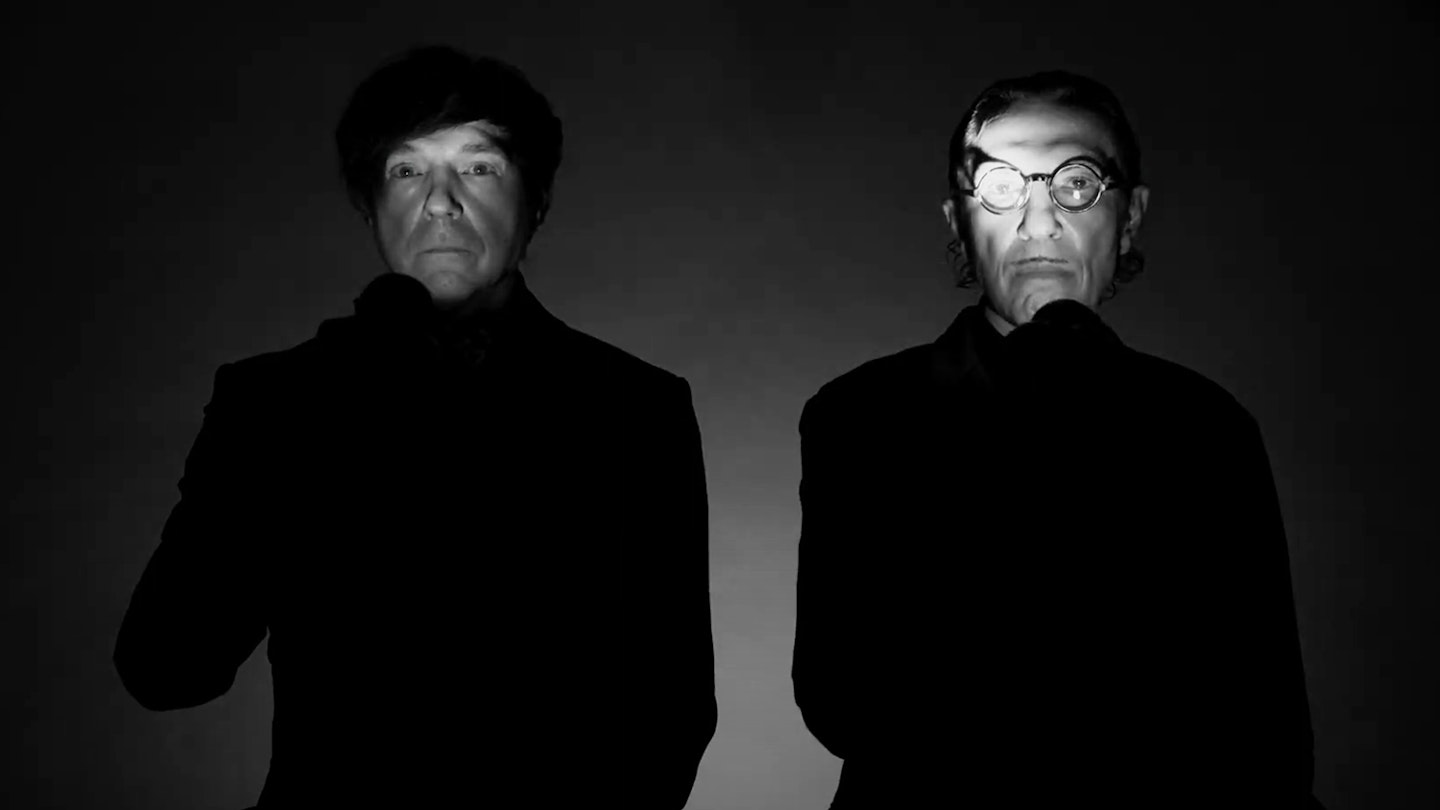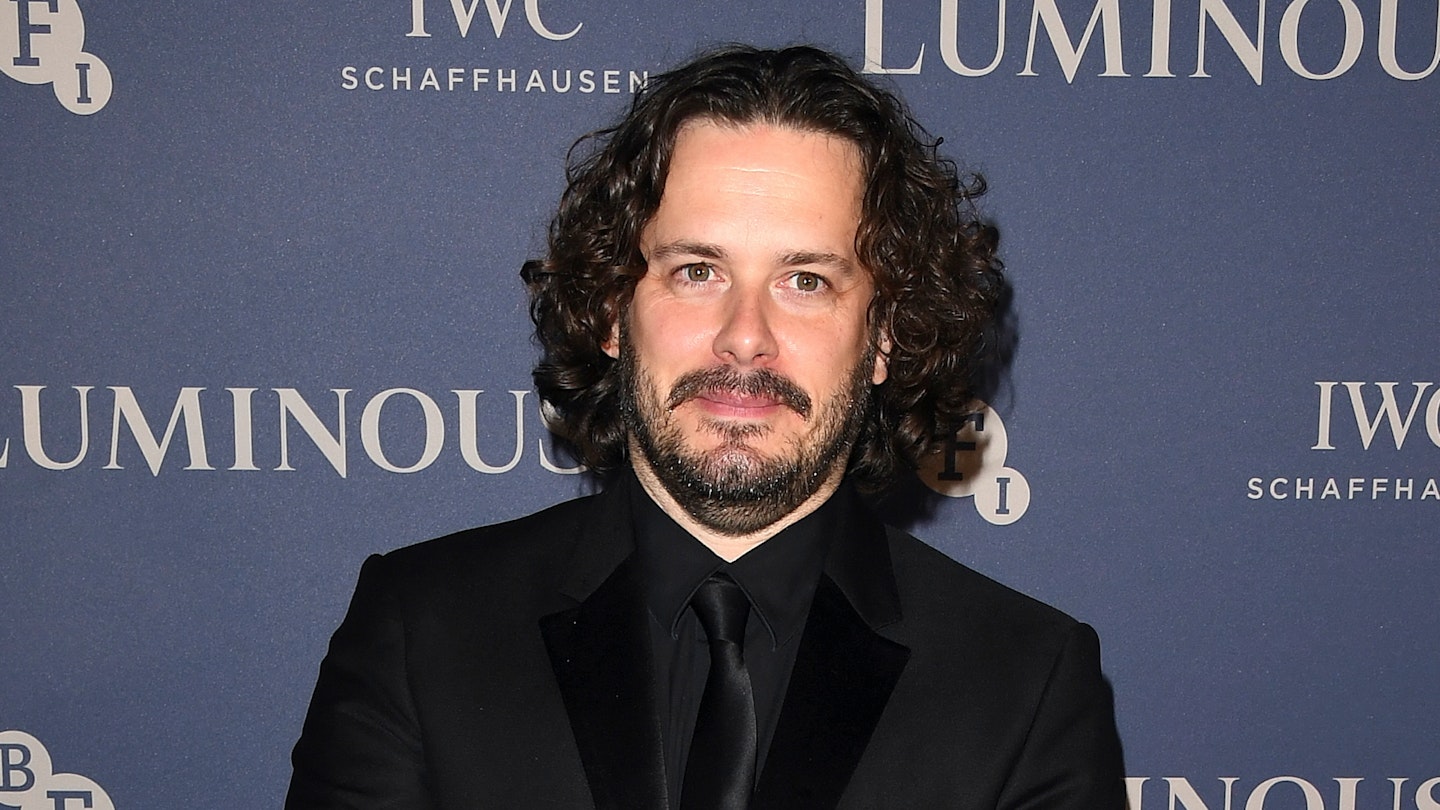Here’s another great film of 2010 which takes place partly – or possibly entirely – within the leading man’s head. Scott Pilgrim, however, is a more feverish film than Christopher Nolan’s stately action movie, this one jittery with caffeine and high on the cluelessness of youth. Does Scott Pilgrim know what he’s doing? Absolutely not. But he may learn more, and figure out more, than Dom Cobb ever managed.
Edgar Wright’s film opens with a flickering assault of neon-bright, acid-scrawled titles accompanied by a blast of noise. If this assault on the senses is too much, leave at once, because while the following film has a wonderfully real-world sensibility at times, full of inept characters whose attempts at witty repartee just keep falling flat, it’s also punctuated by bursts of day-glo action, each fight an excuse to delve into a new arcade game style and deliver another burst of music.
The genius of the film is that Wright’s style, and the work with his editors Jonathan Amos and Paul Machliss, somehow allows the slacker, 90s characters and the bananas action to hang together. The cuts flow seamlessly from crummy apartment to scummy nightclub to wire-fu, airborne extravaganza, punctuated with blocks of comic book text and onomatopoeias straight out of the Adam West Batman series. The result is closer to Spaced with a few extra zeroes on the budget than Hot Fuzz or Shaun; Wright’s filmmaking feeling perversely smoother and more relaxed than it did on either of those outings. The bad news is that we’re going to see other filmmakers trying to ape this feel for years to come, and it’s highly unlikely that any of them will succeed in nailing the magical realism of the tone here, lifted – like much of the dialogue and not a few shots – straight from Bryan Lee O’Malley’s comics.
And after years of wondering why Hollywood can’t ever quite succeed in making a decent video game adaptation, Scott Pilgrim appears to confirm what Crank and the like had already suggested: it’s entirely possible to make a video game movie, as long as you don’t bother basing it on a game. There’s a deep and abiding love of gaming running through this, from the Street Fighter-like tableaux at the beginning of each fight (a ghostly “Vs” hanging in the air between the two opponents) to the touches of 8-bit animation in many of the fights. For fans of gaming (which this writer emphatically isn’t) there are no doubt in-jokes galore, but you’ll barely need to have walked past an amusement arcade to appreciate the artistry with which games and movie have been welded together here.
Even if you don’t get the in-jokes, the film’s funny enough that it won’t matter. After an opening that’s sluggish only in comparison to what follows, the film remains consistently hilarious until the last few, more serious minutes. The sprawling cast are most responsible for this: Kieran Culkin as Wallace, Scott’s roommate, lands the funniest one-liners, but each Evil Ex brings a special touch of ridiculousness. Matthew Patel (Satya Bhabha) showcases Bollywood-inspired dance movies amid the furious punches; Lucas Lee (Chris Evans) nearly steals the movie as the ego-inflated Hollywood star with a growly, almost Bale’s-Batman voice; Brandon Routh does briefly steal it as vegan psychic Todd. That every member of the supporting cast comes away feeling fully fleshed out in only moments of screentime is a testament to great casting – Mark Webber as Stephen Stills, for example, looks uncannily like his comic counterpart – but also to great work by that cast.
Still, there’s a love triangle at the centre of the movie that remains its heart and soul. As Scott Pilgrim himself, Michael Cera abandons his usual thinky, neurotic pose to play utterly thoughtless and simply panicked. Pilgrim, bless ‘im, is one of the dumbest heroes of literature in recent years, and Cera manages to hide his intelligence almost completely – and to convince in the fight scenes to boot, spinning and diving with the best of them. Mary Elizabeth Winstead, as Ramona Flowers, suffers under the sort of horrendous wig that even a member of Twilight's Cullen family would reject as unflattering, but still manages to make Ramona Flowers neither paragon nor bitch. Of the main three, however, it’s newcomer Ellen Wong as 17 year-old Knives Chow who is the revelation, playing so impossibly lovely that you almost root against Scott’s chances with Ramona.
Whether Scott Pilgrim will connect outside its target audience, the sort of late ‘20s / early ‘30s types who lived this life a few years back, remains to be seen, but if there’s any justice it should. Whatever the naysayers claim, this is not a film of style over substance but a film about taking responsibility, learning to see the effects your own actions have on others, and ultimately growing up. It’s that coming-of-age story that ultimately makes Scott Pilgrim work, and it is that that will make it resonate long after the dazzle of its innovative filmmaking has faded.
